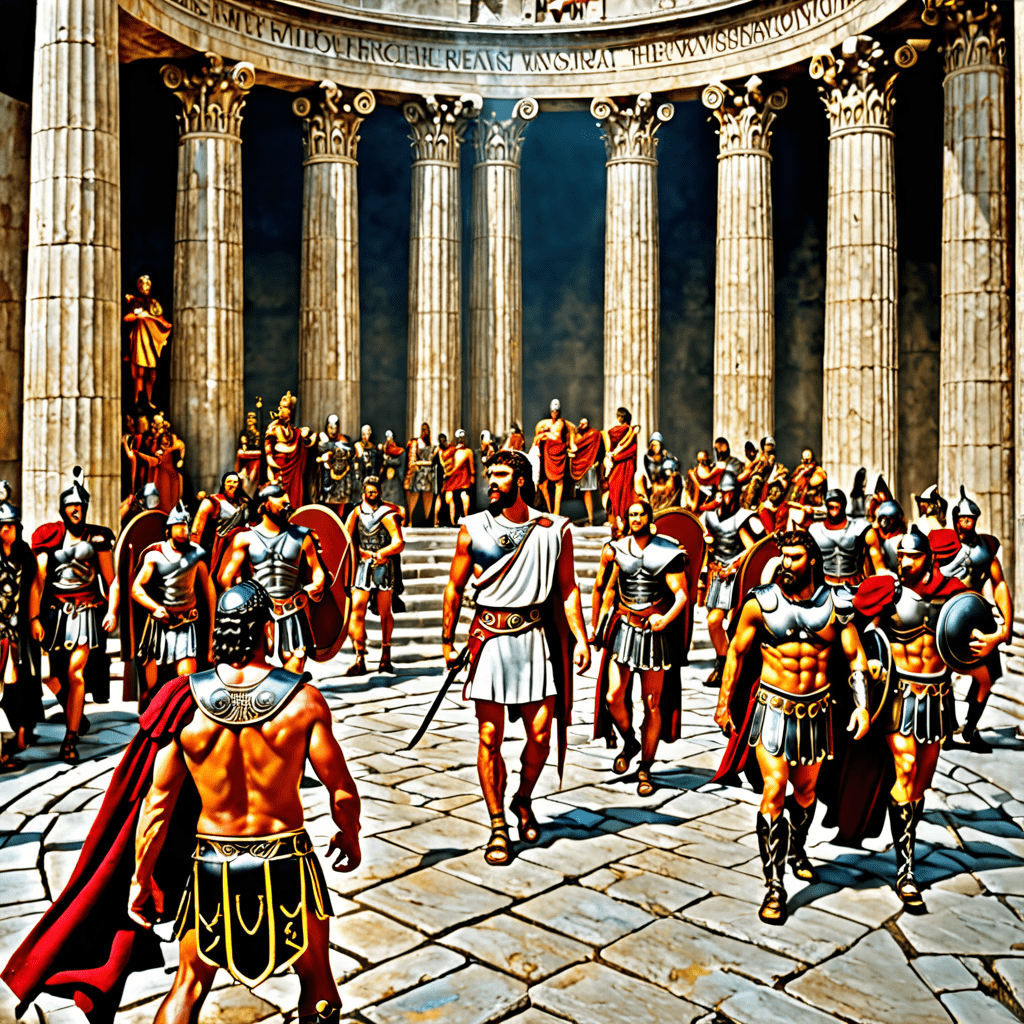Exploring the Concept of Leadership and Followership in Roman Mythology
Roman mythology is filled with tales of powerful leaders and loyal followers, each playing distinct roles in shaping the mythological world. Let’s delve into the intriguing dynamics of leadership and followership as depicted in Roman myths.
The Leadership in Roman Mythology
In Roman mythology, the concept of leadership is often embodied by powerful gods and goddesses such as Jupiter, the king of gods, and Juno, the queen of gods. These deities exhibit qualities befitting of leaders – strength, wisdom, and strategic thinking. Jupiter’s authoritative demeanor and decision-making prowess symbolize effective leadership, guiding other gods and mortals alike.
Leadership in Roman mythology is not limited to celestial beings; mortal figures like Aeneas, the legendary founder of Rome, also exemplify exemplary leadership traits. Aeneas showcases courage, resilience, and a deep sense of responsibility towards his people, displaying the qualities of a true leader who navigates challenges with determination.
Followership in Roman Mythology
Followership in Roman mythology is portrayed in various forms, ranging from loyal companions to devoted subjects. Characters like the goddess Diana’s band of nymphs and the faithful warriors of Mars demonstrate unwavering loyalty and dedication to their leaders.
In Roman myths, followership is not synonymous with blind obedience but rather with respect, solidarity, and a shared purpose. Followers play crucial roles in supporting and complementing the leadership, showing that effective leadership is incomplete without steadfast followers who believe in the vision set forth.
Exploring the Dynamic Interplay Between Leadership and Followership
The relationship between leadership and followership in Roman mythology highlights the importance of mutual respect and collaboration in achieving common goals. Leaders inspire and guide, while followers provide support and implement the visions set by their leaders. This dynamic interplay creates a harmonious balance, ensuring the success and prosperity of kingdoms and civilizations.
By studying the tales of leadership and followership in Roman mythology, we gain insight into the nuances of effective governance, teamwork, and the fundamental principles of leadership that resonate across cultures and generations.
What is the significance of leadership and followership in Roman mythology?
Leadership
In Roman mythology, leadership is often depicted through powerful gods such as Jupiter (Zeus), who ruled over the skies and gods. Leaders like Jupiter exemplified qualities of strength, wisdom, and authority, guiding both gods and mortals.
Followership
Followership in Roman mythology is illustrated through devoted followers, such as the loyal worshipers of Mars, the god of war. These followers demonstrated unwavering allegiance and support towards their chosen deity, embodying qualities of loyalty and obedience.





